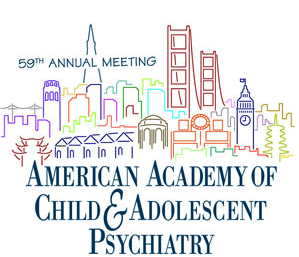I am a member of the American Academy of Child & Adolescent Psychiatry, and I am pleased AACAP has issued this policy statement rejecting the use of medical marijuana for adolescents and sounding alarm bells for the world. As the society wrote, “The ‘medicalization’ of smoked marijuana has distorted the perception of the known risks and purported benefits of this drug. ” The boldface below is mine for emphasis.
AACAP Medical Marijuana Policy Statement
Approved by Council, June 11, 2012
By the Substance Abuse and Addiction Committee
The American Academy of Child and Adolescent Psychiatry (AACAP) is concerned about the negative impact of medical marijuana on youth. Adolescents are especially vulnerable to the many adverse developmental, cognitive, medical, psychiatric, and addictive effects of marijuana.1 Of particular concern to our field, adolescent marijuana users are more likely than adult users to develop marijuana dependence, and their heavy use is associated with increased incidence and worsened course of psychotic, mood, and anxiety disorders.1-3 Furthermore, marijuana’s deleterious effects on cognition and brain development during adolescence may have lasting implications.4
The “medicalization” of smoked marijuana has distorted the perception of the known risks and purported benefits of this drug. Since certain states began permitting dispensing of medical marijuana, adolescents’ perceptions of the harmful effects of marijuana have decreased and marijuana use has increased significantly.5,6 There is also emerging evidence that adolescents are accessing medical marijuana for recreational use.7 Therefore AACAP urges more scientific evaluation and a risk:benefit analysis by interdisciplinary experts to determine whether there is any medical indication for marijuana dispensing given the potential harm to adolescents.8
In summary:
- Adolescents are especially vulnerable to adverse consequences of marijuana use.1-4
- Medical marijuana dispensing is associated with reduced perception of marijuana-related risks and increased rates of marijuana use among adolescents.5-7
- AACAP thus opposes medical marijuana dispensing to adolescents.
References:
- Schneider, M. (2008). Puberty as a highly vulnerable developmental period for the consequences of cannabis exposure. Addiction Biology, 13(2), 253-263.
- Hayatbakhsh, M. R., Najman, J. M., Jamrozik, K., Mamum, A. A., Alati, R., & Bor, W. (2007). Cannabis and anxiety and depression in young adults: a large prospective study. Journal of the American Academy of Child and Adolescent Psychiatry, 46(3), 408-417.
- Moore, T. H., Zammit, S., Lingford-Hughes, A., Barnes, T. R., Jones, P. B., Burke, M., & Lewis, G. (2007). Cannabis use and risk of psychotic or affective mental health outcomes: a systematic review. Lancet, 370(9584), 319-328.
- Jager, G., & Ramsey, N. F. (2008). Long-term consequences of adolescent cannabis exposure on the development of cognition, brain structure and function: an overview of animal and human research. Current Drug Abuse Reviews, 1(2), 114-123.
- Johnston, L. D., O’Malley, P. M., Bachman, J. G., & Schulenberg, J. E. (December 14, 2011). “Marijuana use continues to rise among U.S. teens, while alcohol use hits historic lows.” University of Michigan News Service: Ann Arbor, MI. Retrieved January 2, 2012, from http://www.monitoringthefuture.org
- Wall, M. M., Poh, E., Cerda, M., Keyes, K. M., Galea, S., & Hasin, D. S. (2011). Adolescent marijuana use from 2002 to 2008: higher in states with medical marijuana laws, cause still unclear. Annals of Epidemiology, 21(9), 714-716.
- Thurstone, C., Lieberman, S. A., & Schmiege, S. J. (2011). Medical marijuana diversion and associated problems in adolescent substance treatment. Drug and Alcohol Dependence, 118(2-3), 489-492.
- REPORT 3 OF THE COUNCIL ON SCIENCE AND PUBLIC HEALTH (I-09) Use of Cannabis for Medicinal Purposes (Resolutions 910, I-08; 921, I-08; and 229, A-09) (Reference Committee K) http://www.ama-assn.org/resources/doc/csaph/i09csaph3ft.pdf



We welcome all thoughtful comments, but please abide by our commenting rules